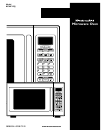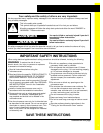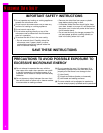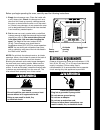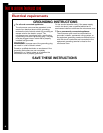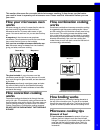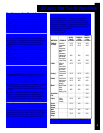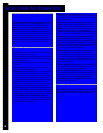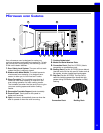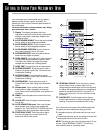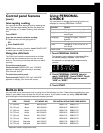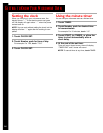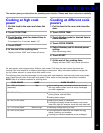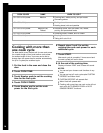
8
Getting to Know Your Microwave Oven
•
The length of the standing time depends on how
much food you are cooking and how dense it is.
Sometimes it can be as short as the time it takes
you to remove the food from the oven and take it to
the serving table. However, with larger, denser food,
the standing time may be as long as 10 minutes.
Arranging food
For best results, place food evenly on the plate. You
can do this in several ways:
•
If you are cooking several items of the same
food, such as baked potatoes, place them in a
ring pattern for uniform cooking.
•
When cooking foods of uneven shapes or thick-
ness, such as chicken breasts, place the smaller
or thinner area of the food towards the center of
the dish where it will be heated last.
•
Layer thin slices of meat on top of each other.
•
When you cook or reheat whole fish, score the
skin – this prevents cracking.
•
Do not let food or a container touch the top or
sides of the oven. This will prevent possible arcing.
Using aluminum foil
Metal containers should not be used in a microwave
oven. There are, however, some exceptions. If you
have purchased food which is prepackaged in an
aluminum foil container, refer to the instructions on
the package. When using aluminum foil containers,
cooking times may be longer because microwaves
will only penetrate the top of the food. (See “Oven
Utensils Guide”.)
If you use aluminum containers without package
instructions, follow these guidelines:
•
Place the container in a glass bowl and add some
water so that it covers the bottom of the container,
not more than
1
⁄4 in. (.64 cm) high. This ensures
even heating of the container bottom.
•
Always remove the lid to avoid damage to the
oven.
•
Use only undamaged containers.
•
Do not use containers taller than
3
⁄4 in. (1.9 cm).
•
Container must be at least half filled.
•
To avoid arcing, there must be a minimum
1
⁄4 in.
(.64 cm) between the aluminum container and the
walls of the oven and also between two aluminum
containers.
•
Always place the container on the turntable.
•
Reheating food in aluminum foil containers usual-
ly takes up to double the time compared to reheat-
ing in plastic, glass, china, or paper containers.
The time when food is ready will vary depending
upon the type of container you use.
•
Let food stand for 2 to 3 minutes after heating so
that heat is spread evenly throughout container.
Starting temperature of food
•
The lower the temperature of the food being put
into the microwave oven, the longer it takes to
cook. Food at room temperature will be reheated
more quickly than food at refrigerator temperature.
Composition of food
•
Food with a lot of fat and sugar will be heated
faster than food containing a lot of water. Fat and
sugar will also reach a higher temperature than
water in the cooking process.
•
The more dense the food, the longer it takes to heat.
“Very dense” food like meat takes longer to reheat
than lighter, more porous food like sponge cakes.
Size and shape
•
Smaller pieces of food will cook faster than larger
pieces. Also, same-shaped pieces cook more
evenly than different-shaped pieces.
•
With foods that have different thicknesses, the
thinner parts will cook faster than the thicker parts.
Place the thinner parts of chicken wings and legs
in the center of the dish.
Stirring, turning foods
•
Stirring and turning foods spreads heat quickly
to the center of the dish and avoids overcooking at
the outer edges of the food.
Covering food
Cover food to:
•
Reduce splattering
•
Shorten cooking times
•
Keep food moist
You can use any covering that lets microwaves pass
through. See “Getting to Know Your Microwave
Oven” for materials that microwaves will pass
through. If you are using the Sensor function, be sure
to vent.
Releasing pressure in foods
•
Several foods (for example: baked potatoes,
sausages, egg yolks, and some fruits) are tightly
covered by a skin or membrane. Steam can build
up under the membrane during cooking, causing
the food to burst. To relieve the pressure and to
prevent bursting, pierce these foods before
cooking with a fork, cocktail pick, or toothpick.
Using standing time
•
Always allow food to stand after cooking. Stand-
ing time after defrosting and cooking allows the
temperature to evenly spread throughout the food,
improving the cooking results.



